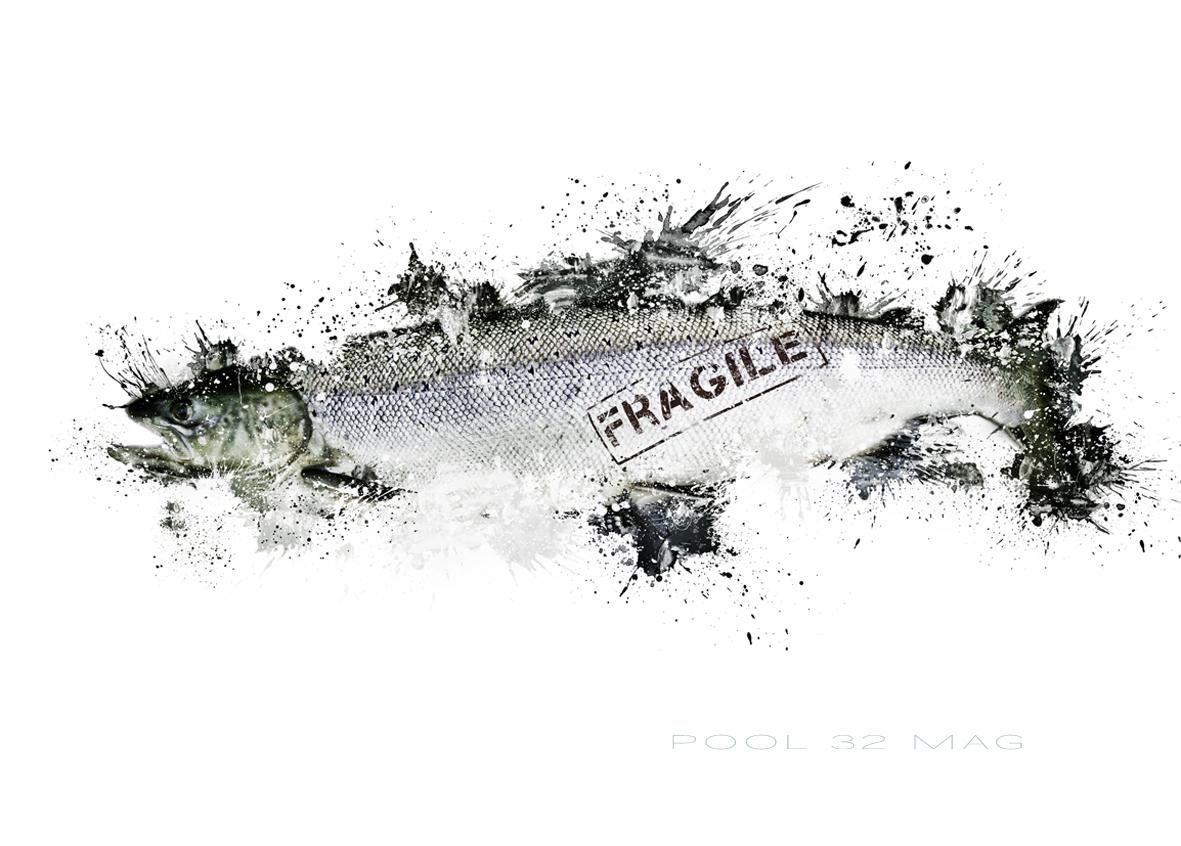Plan for huge fish farm in Strait roils the waters
An Oregon company wants to build a fish farm in the Strait of Juan de Fuca that would nearly double the farmed fish grown in saltwater in Washington. The proposal comes as battles over marine aquaculture heat up, and as the discovery of a potentially lethal fish virus rattles salmon farmers and wild-fish advocates alike.
Seattle Times environment reporter
Here in the Northwest, where wild salmon is king, it's easy to forget that fish farmers rear millions of Atlantic salmon in net pens around Puget Sound.
But a new fish farm hasn't been added to Washington's marine waters in several decades.
Now an Oregon company, Pacific Seafood, wants to grow 10 million pounds a year of steelhead and Atlantic salmon in cages in the Strait of Juan de Fuca. That would nearly double the farmed fish grown in saltwater in Washington.
The proposal comes as long-simmering battles over the future of marine aquaculture heat up across the continent — and as the discovery of a potentially lethal fish virus rattles salmon farmers and wild-fish advocates alike.
Just this summer, the National Oceanic and Atmospheric Administration outlined ways to encourage substantial growth in fish farming to counter a $9 billion seafood-trade imbalance.
Roughly 85 percent of fish and shellfish consumed in the U.S. is imported — half from fish farms in other countries. Some experts believe a global expansion of fish farming will be needed to provide the world's booming population with cheap protein.
"There's a recognition that we are harvesting what we can in wild-capture fisheries, but the demand for seafood continues to grow," said Laura Hoberecht, regional coordinator for NOAA's aquaculture program. "That's going to have to come from farmed products."
But scientists still debate how much of that should be salmon, and just last month in Vancouver, B.C., the potential ecological challenges of salmon farming again took center stage.
A commission led by a federal judge took testimony from scientists and citizens about the possibility that disease, parasites and escapees from salmon farms contributed to a collapse of the Fraser River's famed wild sockeye runs. A final report is due next summer.
Then this week, scientists for the first time said they'd found evidence of infectious salmon anemia (ISA) in two wild sockeye smolts along Canada's Pacific Coast. In its most lethal form, the virus has killed tens of millions of farmed salmon in Norway, Chile, Scotland and New Brunswick, Canada, and some scientists fear it could mutate and pose a risk to wild fish.
There is no sign of a disease outbreak, and the virus' existence in the two fish from northern B.C.'s Rivers Inlet hasn't been confirmed by independent tests. But virologists from several U.S. and Canadian agencies are treating it as an emergency.
"It's certainly of big concern to us," said John Kerwin, who oversees salmon farms for the state Department of Fish and Wildlife. "It's definitely caught our attention."
It's in this environment that Pacific Aquaculture, a division of Pacific Seafood that farms steelhead along the Columbia River in Eastern Washington, hopes to develop a new fish farm in the waters off Clallam County.
"There's now more salmon farmed in the world than there is caught in the wild," John Bielka, general manager of Pacific Aquaculture, said last week, before the ISA announcement. "We'd like to see it done here and keep the jobs here, and the Strait is an excellent area for this type of farming."
Read the rest of this excellent article by Craig Welch - click HERE and it will take you right to this article at The Seattle Times.









No comments:
Post a Comment